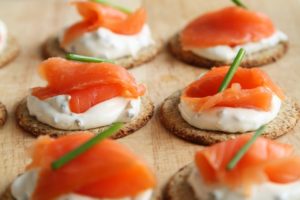 Snacks can be a valuable part of your healthy eating style when chosen wisely. Well planned snacks satisfy your hunger and also compliment your eating plan when you are trying to lose or maintain a normal weight. Here are some guidelines for healthy snacking:
Snacks can be a valuable part of your healthy eating style when chosen wisely. Well planned snacks satisfy your hunger and also compliment your eating plan when you are trying to lose or maintain a normal weight. Here are some guidelines for healthy snacking:
· Make snack calories count within your own personal healthy eating plan without going over your daily calorie budget. Snacks can contribute nutrient rich food groups.
· Snack only when you are hungry. Don’t snack because you are bored or stressed. Stop the urge to snack by walking your dog or diverting your attention. Don’t snack absentmindedly when you are watching TV or surfing the internet.
· Snack on sensible portions. Choose single serve containers, put a small helping in a bowl rather than eating out of the package, skip “super” size drinks and snacks.
· Use food labels to make snack decisions. Remember if a package has two servings and you eat the whole package, you double the calories, fats, sugars and salt.
· Plan your snacks. Keep a variety of ready to eat snacks on hand at home or work. By doing this you won’t be tempted by vending machines that may have unhealthy snacks.
The best snacks are those that fill you up quickly and add few calories to your daily total. Fruits and vegetables are great snacks. People who eat generous amounts of fruits and vegetables as part of a healthy diet are less likely to have chronic diseases such as diabetes, stroke, heart disease, high blood pressure and some types of cancer. Fruits and vegetables have relatively few calories, contain lots of water which helps to fill you up, lots of fiber which makes you feel full longer and lots of nutrients including valuable vitamins and minerals.
Snacking tips at home, work or school:
· Keep cut up fruits and veggies in zip top bags on the lower refrigerator shelf for children to grab.
· Keep a variety of fruits handy on the kitchen counter.
· Freeze grapes, melon balls and berries for a cool treat right out of the freezer.
· Serve veggies with individual serve containers of hummus for a quick snack.
· Keep unsalted nuts and dried fruits such as apricots, raisins, plums and figs on hand. Make sure the dried fruits do not have added sugar. Nuts and dried fruits are calorie dense so be sure to watch your portion size.
· Choose portable fruit and veggie snacks such as baby carrots, bananas, grapes, sugar snap peas, grape tomatoes, broccoli, cauliflower, oranges or apples.
· Drink lots of water. Also, buy 100% fruit juice and mix it with mineral water or drink fat-free milk or 100% vegetable juice.
Snacking is a smart habit and there is no need to feel guilty when it is done right.
Linda Vlastuin, RN, MS
Alaska Kidney Foundation
Source: American Dietetic Association
